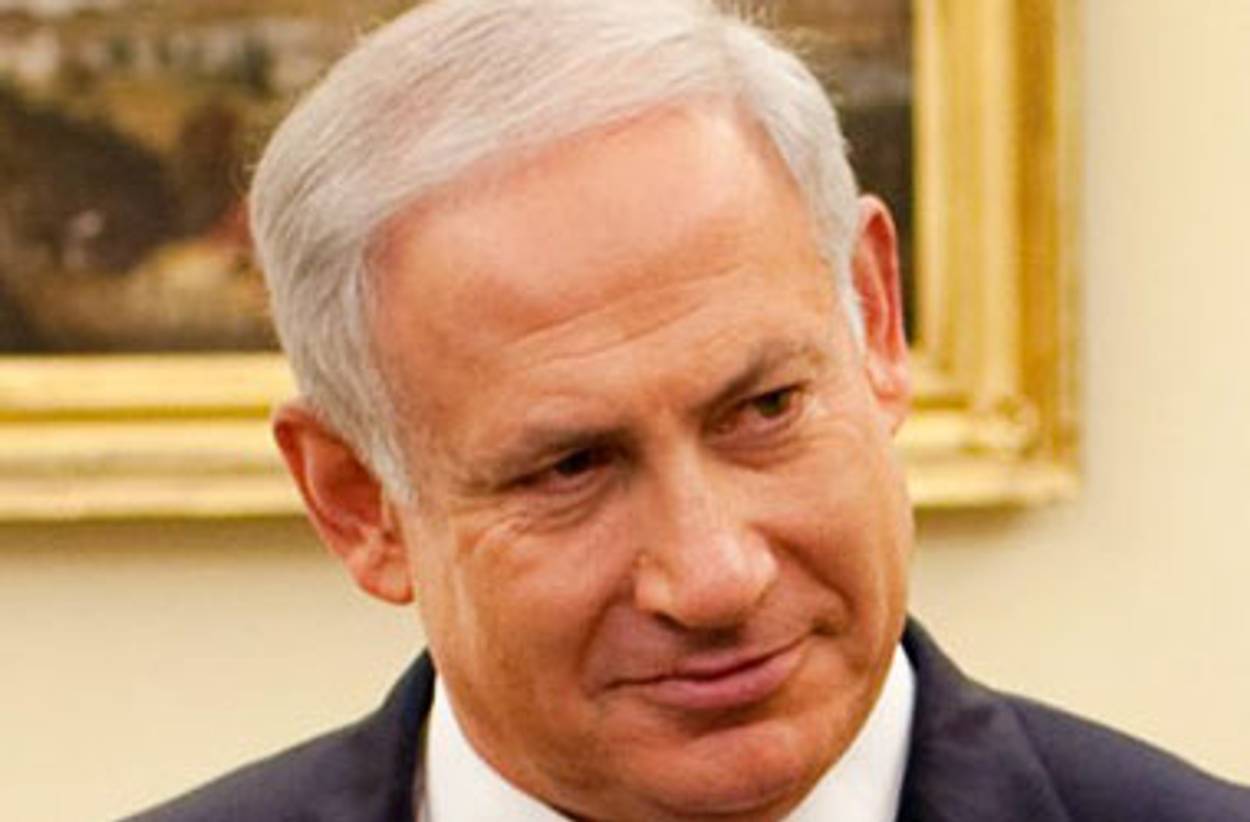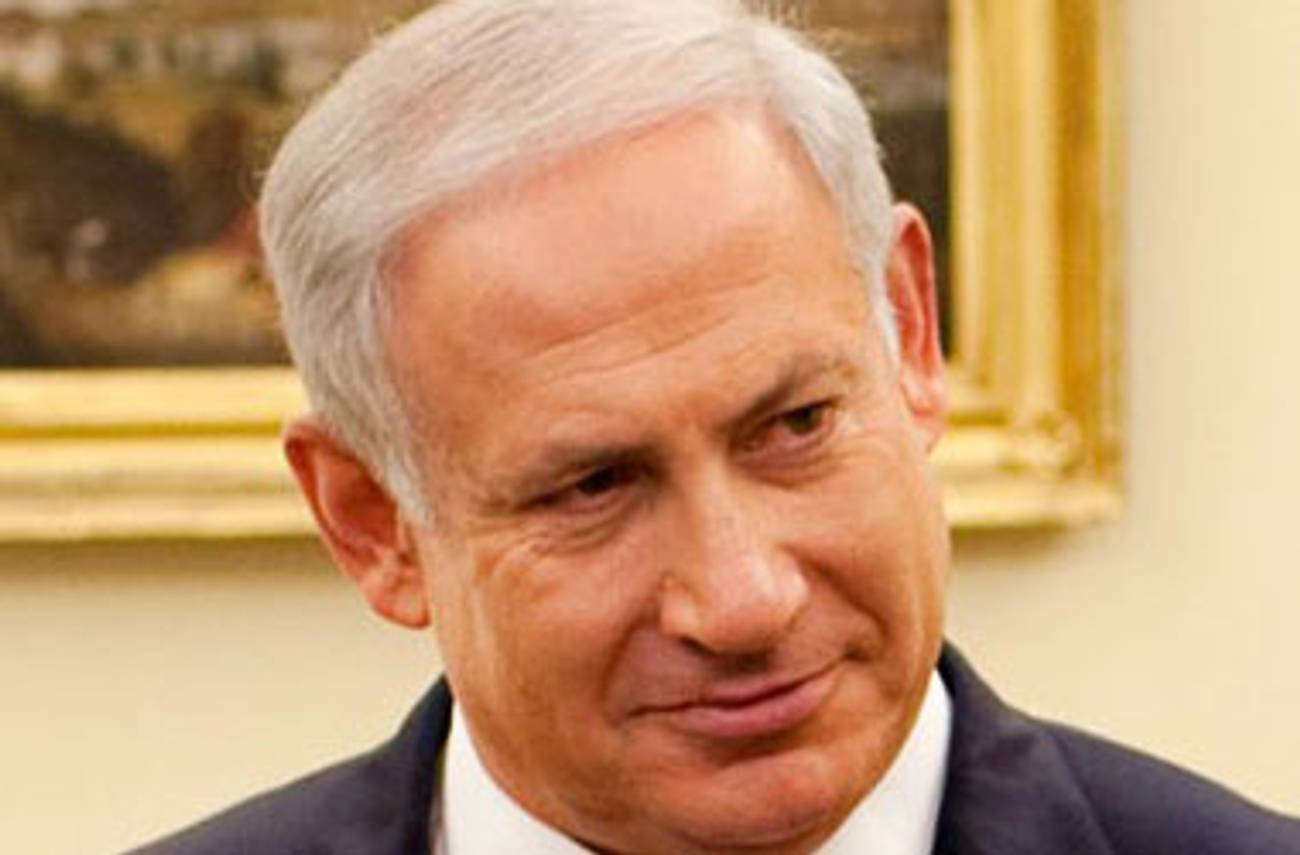Electile Dysfunction
Or, too many leaders and no real choice




The freshly anointed leader, elected after a long and arduous campaign, smiled at the cameras, thanked his supporters, promised to cure Israel’s ills. He graciously acknowledged his competitors—worthy opponents, he said, all of them—and did his best to look both humble and determined. Nothing else, after all, could be expected of the most powerful man in the entire country: the winner of Israeli television’s “Celebrity Big Brother.”
Oh, sorry: some of you poor souls might have assumed that I was talking about Benjamin Netanyahu, who, also on Tuesday evening, presented his cabinet to the nation.
But the nation couldn’t have cared less: for the most part, it was focused on Dudi Melitz, the handsome young actor who survived 31 days in a secluded mansion, under the constant gaze of cameras, and was voted by tens of thousands of Israelis as the most likeable contestant in the country’s most popular reality show.
Netanyahu, as it happened, had to wait his turn: only after Melitz brushed off the confetti and hugged his fellow celebrities did the incoming Prime Minister begin his own, considerably more modest, ceremony, attracting far fewer viewers and almost no fanfare.
There was a good reason for the general lack of interest: the cabinet Netanyahu introduced this week features no fewer than 30 ministers; in a country whose parliament seats only 120 legislators, this is a colossal number.
Israelis, then, have spent much of the past week grumbling that Netanyahu’s bloated government—often dividing simple ministerial responsibilities between two or three officials in a desperate effort to appease all of the large coalition’s many disgruntled members—is unlikely to soar to any real heights. At least Melitz, quipped some kind souls, is likely to still have a career in two or three years.
Far from being oblivious to the public outcry, the newly-minted ministers joined in the chorus of criticism. Take Michael Eitan, the veteran Likud parliamentarian who was appointed Minister-Without-Portfolio Responsible for Improving Services for Citizens, Computerization, and the Internet. “The situation today,” he said, poetically and a bit cryptically, “is like a bicycle with no pedals. The Prime Minister wants to ride, but the only way he could do that is to buy himself some balance by appointing people for different posts.”
This sort of spectacle, however, is something that we Jews already know something about. In this week’s parasha, Moses initiates Aaron and his sons into the priesthood, the first Jews in history ever elected to a public post. It’s no happy affair: sure, the vested clerics have spiffy outfits and elaborate rituals, but Moses, presiding over the ceremony, is in no mood for celebration: “The Lord has commanded,” he says mysteriously, “to effect atonement for you.”
There are, of course, many ways to interpret this strange sentence, but one is consistent with Moses’s long-standing take on the priestly class: we need to atone for our priests because we weren’t supposed to have any priests to begin with.
Consider this: as He introduces Israel into His covenant, God makes clear what he expects the people’s role to be. “You shall be to Me a kingdom of priests,” He says, “and a holy nation.”
A kingdom of priests, of course, is a marvelous thing. Put simply, it’s a kingdom in which everyone is righteous and just and pure, a nation of holy men and women who have no need for clergymen to perpetuate the rituals and observe the Divine laws. This, says the Lord, is the lofty state to which Israel must always aspire.
But Israel, then as now, is an imperfect nation. Early in their errand in the wilderness, the people yearn for a bloated bureaucracy to govern their affairs, and Moses, heeding the advice of his father-in-law Jethro, sets in place an intricate hierarchy of tribal captains that would’ve impressed even Illinois’ most seasoned politicians. And as is the case with the appointment of Aaron and his boys, Moses is devastated: with every bow to the political reality, his dream of a nation of priests, self-governing and pious, fades further away.
Let us not judge, then, those Israelis who this week tuned in to a televized reality show rather than to the terrible reality of their nation’s unwieldy political system. Like Moses, they, too, yearn for the day when all of Israel could truly become a kingdom of priests, making a Minister-Without-Portfolio Responsible for Improving Services for Citizens, Computerization, and the Internet a wholly unnecessary position. Until then, if we’re going to elect our officials, at least let them be handsome, famous, and young.
Liel Leibovitz is a senior writer for Tablet Magazine and a host of the Unorthodox podcast.
Liel Leibovitz is editor-at-large for Tablet Magazine and a host of its weekly culture podcast Unorthodox and daily Talmud podcast Take One. He is the editor of Zionism: The Tablet Guide.